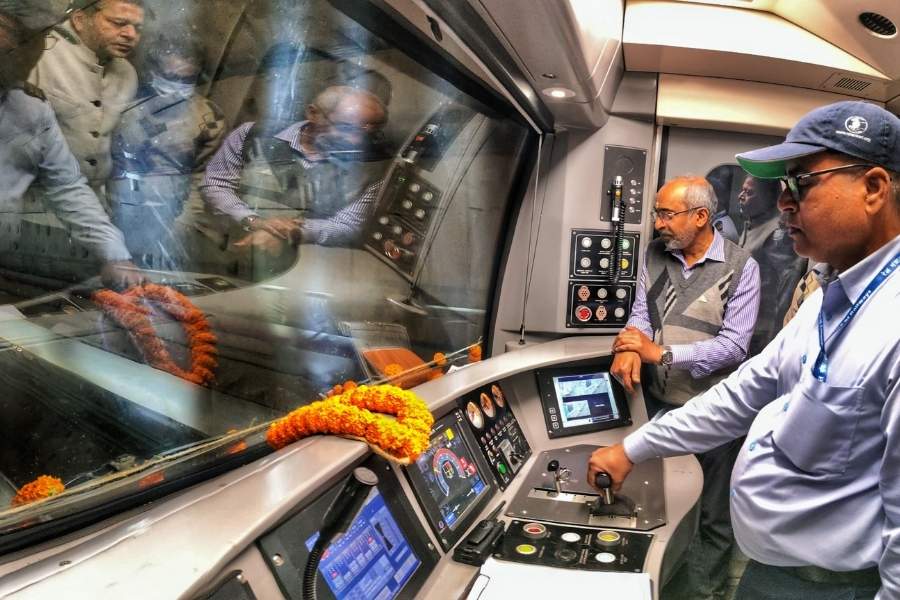 Wednesday, 22 January 2025
Wednesday, 22 January 2025
 Wednesday, 22 January 2025
Wednesday, 22 January 2025
Congress leader Jairam Ramesh on Monday once again flagged the Rs 72,000-crore Great Nicobar Project as one that would have “catastrophic ecological and human consequences”.
The Congress general secretary and former Union environment minister is not the only one who has flagged this project of the Narendra Modi government. Environmental experts, activists, former bureaucrats and at least one senior Navy former officer have also criticised it.
Ramesh posted on X that the present design of the Great Nicobar Island infrastructure project “endangers ecology” in a “needlessly unacceptable manner”.
The Great Nicobar Island project, launched in 2021, is being planned at the southern end of the Andaman and Nicobar Islands. It involves developing a trans-shipment port, an international airport, a township and a gas and solar-based power plant.
NITI Aayog gave the green signal for the project after identifying the potential to utilise the advantageous position of the island, which is equidistant from Colombo in Sri Lanka to the southwest and Port Klang (Malaysia) and Singapore to the southeast.
Despite environmental clearances by an Expert Appraisal Committee of the Ministry of Environment, Forests and Climate Change, there have been appeals by ecological experts, political parties, and civil society groups to cease the project on environmental grounds. But the central government has moved ahead despite disputes on clearances awarded to it.
Here is what politicians and experts have said about the Great Nicobar project.
Congress general secretary in-charge communications Jairam Ramesh on X cited the views of former Chief of Navy Admiral Arun Prakash, who has stated that it is both desirable and possible to bolster security without harming ecology.
“Many of the islands are in a pristine state. You have tribes that have lived there continuously for millennia — unspoilt by “civilization”. This is a very precious heritage which we need to protect and preserve for as long as possible,” said Admiral Arun Prakash in an interview with Civil Society.
According to Admiral Prakash, India can achieve a stronger presence by expanding its defense capabilities on the Great Nicobar and also by utilizing some of the smaller islands if needed.
On September 16, Union minister for ports, shipping and waterways, Sarbananda Sonowal said, “Our aim is to make India a developed nation...Those who are opposing the Great Nicobar transhipment port project, is because of vested interest.”
A proposed International Container Transhipment Port (ICTP), at Galathea Bay, Great Nicobar Island, is a part of the Great Nicobar Project.
In February 2024, the Union shipping ministry had released an advertisement packaging the mega project as “a lifetime opportunity for investors to reap gold”. The video concludes that the project will help “India truly realise its vision to become a developed nation by 2047”.
Last month, Ramesh wrote a 10-page letter to Union minister of environment, forest and climate change Bhupender Yadav over the Great Nicobar Island infrastructure project, alleging the high-powered panel tasked to revisit environmental clearances to the project was “biased” in its very composition and did not carry out any meaningful reassessment.
In his response, Yadav assured that he has put in place “exemplary mitigation measures” to reduce the environmental impact of the project while considering “strategic, national, and defence interests.”
In an interview with Article 14, Anstice Justin, 70, former deputy director, Anthropological Survey of India and a Nicobarese, spoke at length about the tribal communities to whom the island is home and the threats posed to them by the mega infrastructure project.
Justin agreed with Jairam Ramesh’s warning about “the grave threat” that the project posed to the island’s tribal communities and its rainforests, and challenged Yadav’s claims.
“Has the environment minister conducted an assessment? Has he ever talked to the Shompen or the Nicobarese about the problems they are facing and the other ground realities?” said Justin. “We do not understand the language of the Shompen but this is not the only problem. We are imposing ‘development’ on them.”
“The Mongoloid Shompen Tribe, about 200 in number, live in the forests of the biosphere reserve, particularly along the rivers and streams. They are hunters and food gatherers, dependent on forest and marine resources for sustenance.” The NITI Ayog report says.
In April 2023, the National Commission for Scheduled Tribes (NCST) also raised concerns about the violation of forest rights of local communities. The NCST is a constitutional body meant to safeguard rights of tribal communities and investigate violations.
On the Shompen question, former Union tribal affairs minister Arjun Munda in April 2023 said “The interests of the tribal population near the Great Nicobar project will not have any adverse effect because there will be strict implementation of the provisions to protect the interest of the Shompen tribe.”







